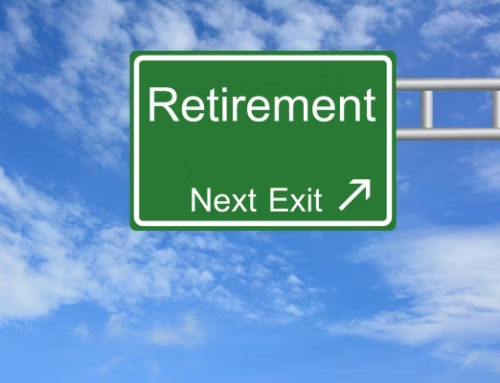According to a recent paper by a Wharton Business School professor, one in 10 U.S. households have filed for bankruptcy at some point. Moreover, approximately 1 million file for personal bankruptcy each year. Yet, even in the wake of total household debt soaring to a record $14.3 trillion in the first quarter of 2020, the number of personal bankruptcy filings is at a 15-year low.1 However, it seems possible we might see that change soon.
Last spring, Congress passed legislation authorizing economic stimulus payments of up to $1,200 for qualifying taxpayers, as well as higher unemployment insurance payments for those who lost jobs due to the pandemic. However, months followed with no additional help from the government and many businesses flailing while millions of Americans sat out — or at least sat at home — and reduced their participation in the economy. This is the type of scenario in which many people may quietly file for bankruptcy.
Unfortunately, not only does filing for bankruptcy create a sinking feeling of defeat, but it also costs you. Court fees can cost around $300 and, if you hire legal representation, you could pay up to $2,000. If you had that money, you might be able to continue making minimum debt payments. It’s also important to consider the long-term effects of a bankruptcy filing. The act will place a mark on your credit report for seven to 10 years, and because many employers now check credit reports for prospective employees, it could harm your chances of landing a job.2
However, there are certain advantages to filing for bankruptcy. First of all, the act triggers an automatic stay so creditors must stop collection efforts, including repossessing property. It puts a stop to many evictions, foreclosures, wage garnishments and utility shutoffs, and ultimately the court may decide to discharge some your debt obligation and reduce future payment requirements. Unfortunately, some property could be seized by the bankruptcy court and sold to pay your creditors, and many credit card companies will automatically cancel your credit cards when you file for bankruptcy.3
In recent years, there’s been a significant marketing push for “debt relief,” which is generally one step short of filing for bankruptcy. These programs negotiate debt settlements that scale back money owed. However, they too can damage your credit score for many years.4
Other debt relief programs include restructured loans (often used for mortgages) and outright loan forgiveness programs — which has become a hot congressional topic with regard to student loans. But before entering any debt relief program, perhaps your best option is to speak with a qualified, nonprofit credit counseling agency for a free debt analysis. Make sure you select a legitimate resource which, by law, serves the clients’ best interests by recommending a debt solution that works best for you — not the agency.5
There is a popular opinion among economists that our economy will remain hamstringed as long as millennials and younger adults keep graduating from college with burdensome student loan debt.6 While following a normal path from entry-level job to mid-career positions, persistent monthly loan payments prevent or slow their ability to follow the normal path of buying a home, having children and all the other activities that lead to consumerism and economic growth. While so many young adults remain on the discretionary spending sideline, there is less capital available to fuel the economy.
1 Knowledge@Wharton. Oct. 6, 2020. “What Drives Household Bankruptcy?” https://knowledge.wharton.upenn.edu/article/what-drives-household-bankruptcy/. Accessed Oct. 27, 2020.
2 Ibid.
3 Ken LaMance. Legal Match. Oct. 16, 2020. “Advantages and Disadvantages to Bankruptcy.” https://www.legalmatch.com/law-library/article/bankruptcy-advantages-and-disadvantages.html. Accessed Oct. 27, 2020.
4 The Black Chronicle. Oct. 25, 2020. “Credit Card Debt Relief Programs Guide: Which Solution Is Right for Your Financial Situation?” https://blackchronicle.com/credit-card-debt-relief-programs-guide-which-solution-is-right-for-your-financial-situation/. Accessed Oct. 27, 2020.
5 Mike Winters. Lifehacker. Oct. 2, 2020. “What Are Your Debt Relief Options?” https://twocents.lifehacker.com/what-are-your-debt-relief-options-1845256374. Accessed Oct. 27, 2020.
6 Chris Arnold. NPR. Nov. 25, 2019. “Forgiving Student Debt Would Boost Economy, Economists Say.” https://www.npr.org/2019/11/25/782070151/forgiving-student-debt-would-boost-economy. Accessed Oct. 27, 2020.
Content prepared by Kara Stefan Communications.





